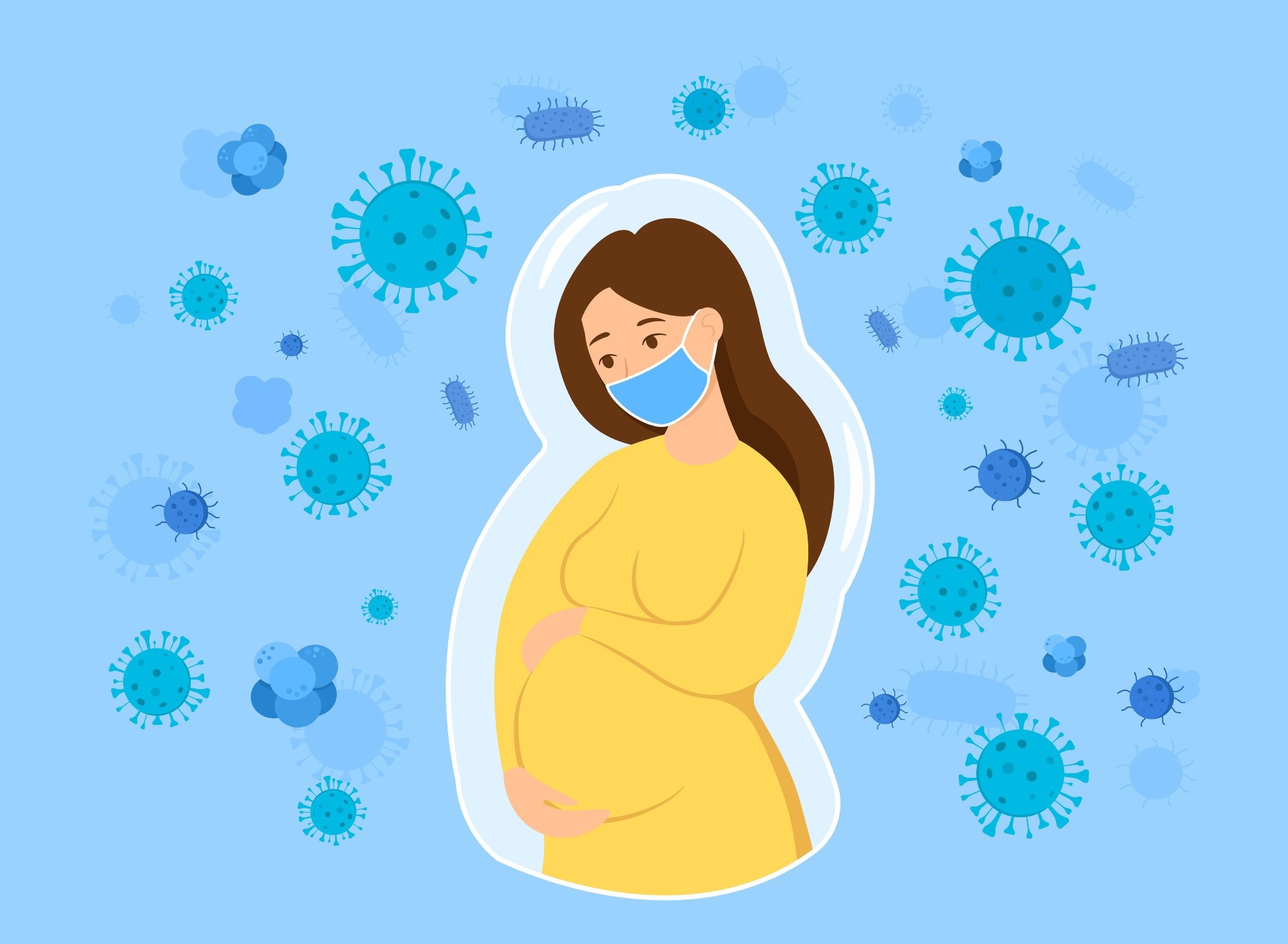Pregnant individuals are at risk for severe COVID-19 complications. Data from the United States (US) Centers for Disease Control and Prevention (CDC) revealed that pregnant individuals were five times more likely to require intensive care and had 3.3 times greater mortality risk than non-pregnant individuals. Most studies analyzing immune responses against SARS-CoV-2 have focused on serologic immunity, with limited evaluation of mucosal responses.
 Study: Reduced control of SARS-CoV-2 infection is associated with lower mucosal antibody responses in pregnant women. Image Credit: mentalmind / Shutterstock
Study: Reduced control of SARS-CoV-2 infection is associated with lower mucosal antibody responses in pregnant women. Image Credit: mentalmind / Shutterstock

 *Important notice: medRxiv publishes preliminary scientific reports that are not peer-reviewed and, therefore, should not be regarded as conclusive, guide clinical practice/health-related behavior, or treated as established information.
*Important notice: medRxiv publishes preliminary scientific reports that are not peer-reviewed and, therefore, should not be regarded as conclusive, guide clinical practice/health-related behavior, or treated as established information.
About the study
In the present study, researchers evaluated clinical outcomes, infectious virus recovery, viral RNA levels, and mucosal anti-spike antibody responses in pregnant individuals. They used remnant nasopharyngeal or nasal swabs after diagnostic SARS-CoV-2 screening across Johns Hopkins Health System (JHHS) from October 2020 to May 2022.
Clinical and vaccination data were extracted and analyzed from electronic health records. Patients identifying as male and those with undisclosed sex at birth were excluded. A control cohort of non-pregnant individuals was selected by propensity score matching. Vaccinated status was defined as receiving the primary or booster series before SARS-CoV-2 infection. Partially vaccinated individuals were excluded.
After the clinical diagnosis of infection, samples were retested using CDC-designed primers and probes for the nucleocapsid gene to measure viral RNA levels. VeroE6/TMPRSS2 cells were used to recover infectious SARS-CoV-2. Cells were monitored for cytopathic effect (CPE); reverse-transcription polymerase chain reaction (RT-PCR) was performed to verify the presence of viral genome(s) in CPE-positive samples.
Fisher’s exact test was used to compare clinical characteristics, virus recovery, and anti-spike immunoglobulin G (IgG) titers. Area under the curve (AUC) values were computed, and differences in IgG AUC values between groups were assessed using the two-way analysis of variance (ANOVA) with Tukey’s multiple comparisons. Multivariate linear and logistic regression models were used to examine the association(s) between immunologic measures, pregnancy, and vaccination.
Findings
Remnant clinical samples and data on vaccination/sequencing were available for 117 pregnant subjects and 335 controls. Clinical characteristics of SARS-CoV-2 infection were different between pregnant and non-pregnant individuals. Pregnant subjects were less likely to report symptoms but more likely to hospitalize or require intensive care if symptomatic.
Among non-vaccinated individuals, infection was predominately due to ancestral SARS-CoV-2 lineages. Many vaccinated individuals experienced breakthrough infections with SARS-CoV-2 Delta or Omicron. There were fewer samples from vaccinated non-pregnant individuals from which infectious viruses could be recovered than non-vaccinated individuals.
A similar trend was observed between vaccinated and non-vaccinated pregnant individuals, albeit statistically insignificant. The team observed no significant differences in the infectious virus recovery rates between pregnant and non-pregnant individuals, irrespective of vaccination status. SARS-CoV-2 RNA levels were similar between the two groups, and statistical differences were not observed.
Vaccinated subjects exhibited elevated anti-spike IgG titers than non-vaccinated individuals. The proportion of subjects with undetectable IgG titers (non-responders) was higher among non-vaccinated subjects than vaccinated individuals. However, the difference was not statistically significant between non-pregnant and pregnant individuals.
Furthermore, the researchers noted a robust inverse correlation between IgG AUC values and the probability of infectious virus recovery among non-vaccinated individuals (regardless of pregnancy) and vaccinated non-pregnant subjects. A similar but non-significant inverse relationship was observed for vaccinated pregnant individuals.
Viral RNA levels increased with maternal age in vaccinated pregnant individuals, but IgG titers declined. That is, vaccinated pregnant subjects in the 25-34 and 35-44 age groups exhibited higher viral RNA levels but lower IgG titers than those in the 18-24 age group. The lowest viral RNA levels were recorded during the third trimester of pregnancy among vaccinated and non-vaccinated individuals.
Moreover, IgG titers were higher during the third trimester than in the first or second trimester. Although differences in viral RNA load were not found between pregnant and non-pregnant subjects, Omicron-infected pregnant vaccinated individuals had lower IgG titers than vaccinated controls. Contrastingly, IgG titers were comparable between non-vaccinated pregnant and non-pregnant individuals, irrespective of the infecting variant.
Conclusions
The findings revealed that COVID-19 severity was higher among pregnant individuals than among non-pregnant controls. Vaccination decreased infectious virus recovery in non-pregnant controls but not in pregnant subjects, suggesting that vaccine-elicited protection might be lower during pregnancy. Overall, the team identified higher maternal age, Omicron infection, and the first trimester of pregnancy as factors contributing to a dampened mucosal antibody response.

 *Important notice: medRxiv publishes preliminary scientific reports that are not peer-reviewed and, therefore, should not be regarded as conclusive, guide clinical practice/health-related behavior, or treated as established information.
*Important notice: medRxiv publishes preliminary scientific reports that are not peer-reviewed and, therefore, should not be regarded as conclusive, guide clinical practice/health-related behavior, or treated as established information.